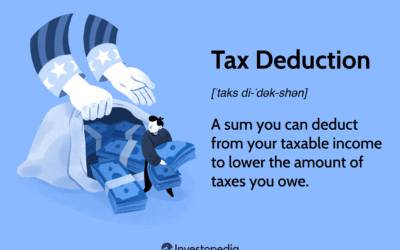Business accounting is an essential component of any prosperous company. It involves monitoring all financial transactions and guaranteeing that they are accurately documented in the books. In this guide we will provide some fundamental concepts to help you grasp business accounting better.
Business Accounting Basics
Business accounting entails recording all transactions made by a company. This encompasses income earned from sales or services rendered alongside expenses such as rent, salaries and utilities among others associated with running the business. The primary objective of this process is to ensure that an accurate picture of finances exists at any given time for companies involved in commerce activities.
Basic Accounting Terms and Concepts
When it comes to business accounting there are several key terms and concepts that you need to know. These include assets, liabilities, equity, revenue, expense, profit or loss, balance sheet, income statement as well as cash flow statement. Assets refer to anything owned by the company such as property, equipment inventory or accounts receivable while liabilities represent debts owed by the same entity. Equity represents ownership in said organization whereas revenues denote money generated through sales or services rendered. Expenses on the other hand refer to costs associated with running operations within an enterprise. Profit is what remains after deducting all expenditure from total earnings while losses occur when expenses exceed earnings during a particular period of time. The balance sheet provides information about companies’ assets, liabilities as well as equities at any given moment in time while income statements show profits/losses over specific periods. Finally, cash flow statements track how much cash enters into and exits out of organizations during designated intervals.
The Importance of Accurate Financial Records
Adequate financial record keeping is crucial for any business. It enables companies to make informed decisions about their operations, investments and expansion plans with confidence. Without proper documentation of expenses or income streams firms may encounter losses due to overspending on certain areas while underserving others that could drive growth opportunities forward instead . Additionally accurate records can help identify trends , patterns as well as changes in customer behavior which allows businesses adjust strategies accordingly based on data driven insights rather than guesswork alone. This level of precision ensures optimal outcomes across all aspects of a companys activities over time – making it an essential component for success within todays competitive marketplace environment where margins are tight but competition fierce!
Small Business Accounting – Common Errors
Small businesses often struggle with managing their finances effectively due to various challenges. Common mistakes include not tracking expenses properly, mixing personal and business funds together failing promptly collecting payments from customers or having inadequate controls against fraudulent activities or errors. To avoid these issues small business owners should establish clear policies for handling financial transactions through automation using accounting software regularly reviewing/analyzing financial statements while seeking professional advice when necessary.
It is important for people to focus on finding out the essential aspect of maintaining exact economic documents in order to stay informed concerning their finances. This expertise will certainly make it possible for business to make wise decisions relating to future growth leads, which is vital for running a successful venture.





